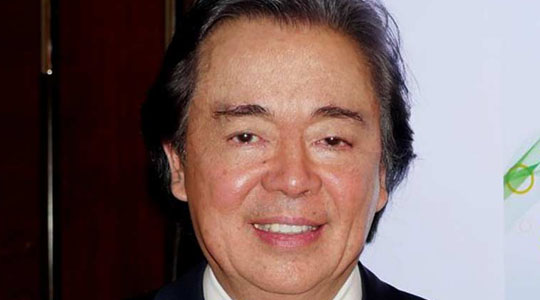ILLEGAL ang isinusulong ni Presidential Adviser for ICT Ramon Jacinto na limitahan sa dalawa ang bilang ng independent at private companies na papayagang magtayo ng cell site towers sa bansa.
Sa magkaparehong posisyon laban sa towercos duopoly, iginiit ng Globe Telecom at Smart Communications, Inc. na labag sa kanilang congressional franchise ang plano ni Jacinto.
Sa kanilang position paper hinggil sa DICT at NTC Draft Joint Memorandum Circular (“MC”) on policy, rules and regulations on common and shared infrastructure in the public telecommunications market, sinabi ng dalawang telcos na hindi sila maaaring pagbawalang magtayo ng kanilang telecommunications towers.
Nakasaad sa draft MC na, “future deployment of all telecommunications towers shall be performed only by the TowerCos registered by the National Telecommunications Commission.’ Through this provision, Mobile Network Operators (MNOs) would no longer be able to build or construct their own telecommunications towers. They can only do so when the MNO demonstrates that the TowerCo is unable, despite request and a lapse of thirty (30) days from request, to provide the necessary facility to the MNO, in which case the MNO itself can built its own tower.”
Binigyang-diin ng Globe at Smart na nilalabag ng draft MC ang kanilang prangkisa na nagkakaloob sa kanila ng karapatan na magtayo ng sarili nilang telecommunications towers.
“Basic is the principle that a mere executive issuance, like a memorandum circular, cannot amend a legislative enactment, e.g. R.A. No. 10926; the former cannot purport to do more than implement the later. Memorandum circulars must always be in harmony with the law. And in case of conflict between an executive issuance and a law, the latter must prevail,” ayon sa dalawang telcos.
Ipinaliwanag pa ng dalawang telcos na kahit maisabatas, ang pagbabawal sa future deployment ay magiging ‘unconstitutional’ dahil lalabagin nito ang ‘non-impairment of obligation of contracts clause’ ng constitution, na nagsasaad na walang batas na pipinsala sa ‘obligation of contracts’ ang ipapasa.
“There is impairment if a subsequent law changes the terms of a contract between the parties, imposes new conditions, dispenses with those agreed upon or withdraws remedies for the enforcement of the rights of the parties.”
Paliwanag pa ng dalawang telcos, walang garantiya na ang independent towercos ay makapagtatayo ng kinakailangang 50,000 towers sa susunod na pitong taon.
“The towercos, private and independent, would still have to go through the same bureaucratic red tape from various local government units. An average of 28 permits are required to be able to construct a single cell tower. And this entire process usually takes about eight (8) months to one (1) year to accomplish. LGUs also demand unreasonable, unnecessary and arbitrary taxes, regulatory fees, and other exactions. Tower fees could reach as high as P200,000 to P250,000 annually. There is likewise no standardized tower and other fees across LGUs. Many LGUs even do not recognize the tax exemptions granted unto MNOs in their respective franchises.”
Idinagdag pa ng Globe at Smart na ang independent towercos ay hindi maaaring limitahan sa dalawa dahil anti-competitive ito at hindi naging praktis ng efficient tower markets, at lalabag sa R.A. No. 10667 at R.A. No. 7925.
“Under R.A. No. 10667 or the PhilippineCompetition Act, the State recognizes that the provision of equal opportunities to all promotes entrepreneurial spirit, encourages private investments, facilitates technology development and transfer and enhances resource productivity. Unencumbered market competition also serves the interest of consumers by allowing them to exercise their right of choice over goods and services offered in the market.
“But limiting the number of TowerCos to two (2) unfairly excludes other companies from playing. This ultimately leads to a duopoly resulting in efficiencies. While R.A. 10667 seeks to create a competitive market, the proposed MC assists the towercos in unfairly obtaining market power.”




Comments are closed.